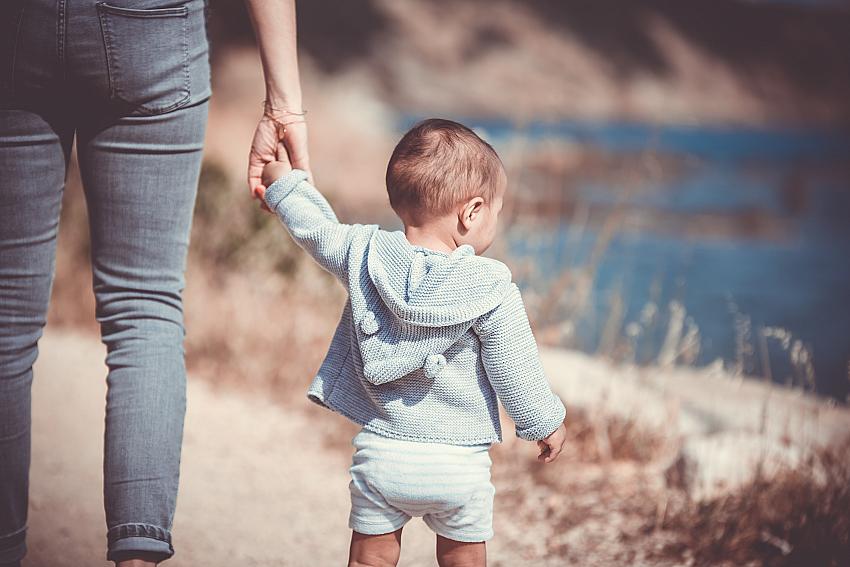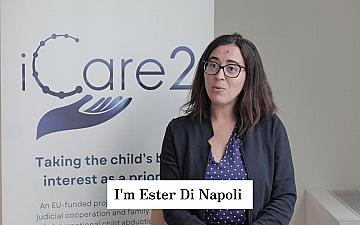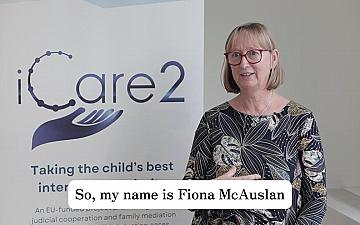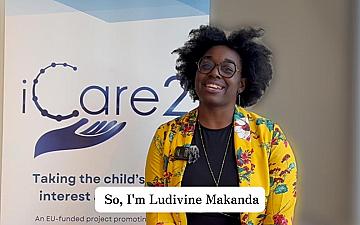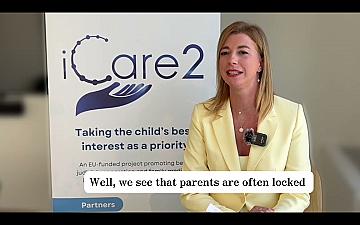The global issue of incarcerated parents is one that has only recently been gaining attention. The difficulty with comprehending the moral and ethical dilemmas has kept this topic from the public eye for a while. However, current focus on mental health and the importance of children’s environments as kids are growing up, has put the spotlight on the issue. Even though parents are incarcerated, they are still the parents of their children. The incarceration of a parent prompts a lot of feelings that most children cannot comprehend and understand. Another issue is the cycle in which these children end up being in, as they were outcasted by society and are more likely to end up in prison themselves[i]. Children are known as the most delicate and moldable beings on the planet as they absorb and change their internal emotional standings based on their environment. Helping parents to connect with their children through specific programs while they are incarcerated is beneficial in a multitude of ways. It strengthens and prioritizes the well-being of the child, creates an opportunity for parents to get reintroduced into society in more favoring circumstances and could break a pattern of behavior in the future.
The children of today will be the leaders of tomorrow, but to ensure our future will be as bright as the kids are, we need to consider their necessities and needs. The relationship with their biological parents in the situation of incarceration could mean a significant change in the child’s developmental ability. The childhood of youths with parents in prison is not only a source of intense trauma, but also emphasizes feelings that children are not equipped to handle. There are intense feelings of shame, disappointment, anger, abandonment, guilt. How does one react to the imprisonment of their parent? To most children their parents are their superheroes, they know their moms and dads will protect them. When the child cannot have a relationship with the parent, some cases exhibit the severity of their emotional distress as these children experience symptoms of post-traumatic stress disorder. Throughout the process of funding and encouraging programs which keep parents in contact with their children, research has indicated they have a positive effect on the child. There is a much better emotional adjustment for the child[ii] when provided with the opportunity to have a relationship with the parent or parents that have been incarcerated.
As understanding of this issue grows, more organizations are getting involved aiming to better the conditions in which prisoners can sustain their parent status in the life of the child. Within the European Union, there is a network founded in 2000[iii] by the name of Children of Prisoners Europe (COPE), focused on helping and bringing awareness to parental imprisonment and its effect on children. In the 2019 Report of COPE, the latter calls for a different legislative structure as “the best interests of the child should be placed at the front and center of the legal procedure”[iv], which is not currently the case. The issue with incarcerated parents in today’s society is the attribution of the parent’s incarceration to the child. The community’s response so far has not been to help children with incarcerated parents, but rather allow them to suffer and be punished for the mistakes of their parents.[v] Through COPE a large number of programs have been launched in enhancing the parental status of parents in prison. The results of such programs unsurprisingly have led to a positive association between prison visiting and positive emotional outcomes for the child, as well as to a more stabilized relationship.
Another program is Parenting Inside Out which is based in the United States. The study carried out with both a controlled group which did not participate in the program and a group which participated in the program has shown incredibly inspiring results. At a one-year post release period, it is found that the participants in the program were 32 – 41% less likely to reoffend and showed a substantial 29%[vi] reduction in criminal behavior compared to the controlled group. Parenting Inside Out is based on positive reinforcement of parental duties, social and parenting skills. Additionally, the effects of the program center around reintroducing the incarcerated parents into society. Thus, the program not only has a positive outcome for both parties (children and parents), but also leads to a high incentive for keeping good behavior, lowering the risk of re-offending.
“Every child has his or her own dignity. If a child is to be constitutionally imagined as an individual with a distinctive personality, and not merely as a miniature adult waiting to reach full size, he or she cannot be treated as a mere extension of his or her parents, umbilically destined to sink or swim with them.”[vii] This quote perfectly highlights one of the colossal problems of how society handles parenting from prison. Children are suffering emotionally, mentally, and physically from the consequences of their parents’ mistakes. Networks and programs such as COPE and Parenting Inside Out are heavily focused on positive reinforcement for both the parents and the children. Their overall outcome is interrelated with a higher societal welfare through help for the next generation and prevention of children of incarcerated parents from ending up in prison. Thus, such initiatives and practices shall be introduced and spread globally. Our future is our children, but we need to put them first and this cannot be made on a selective basis. [viii]
This publication is created within the NESTOR project, which is implemented under the Erasmus + Programme of the European Commission, Grant Agreement №621410-EPP-1-2020-1-EL-EPPKA3-IPI-SOC-IN. All publications created within the NESTOR project are the sole responsibility of their authors, and they do not in anyway express or influence the views of the European Commission.
[i] https://www.nber.org/system/files/working_papers/w24227/w24227.pdf
[ii] https://www.ncbi.nlm.nih.gov/pmc/articles/PMC3050674/#R38
[iii] https://childrenofprisoners.eu/who-we-are/
[iv] 2019 Annual Report
[v] Chesa Boudin
[vi] http://www.parentinginsideout.org/evidence-based-practices/
[vii] Justice Albie Sachs, S v M, Constitutional Court of South Africa (2007)
